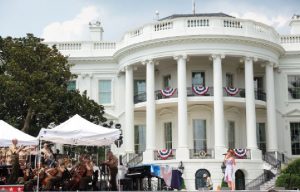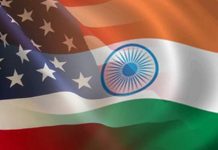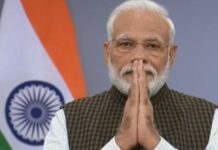 Even as more and more nations are coming forward to extend their support for a global coalition against terrorism, doubts are creeping in within the Bush Administration about the motives behind such offers of cooperation.
Even as more and more nations are coming forward to extend their support for a global coalition against terrorism, doubts are creeping in within the Bush Administration about the motives behind such offers of cooperation.
The realisation seems to be dawning on the White House that many of the countries most eager to participate in a crackdown against terrorism have their own vested interests for collaborating with the United States.
Many countries, with regional agendas, are hoping to use the inexperienced US president’s one-track lust for vengeance against the perpetrators of the September 11 attack to settle their own scores with troublesome neighbours or domestic resistance groups.
While British Prime Minister Tony Blair has jumped at the chance to project himself as more loyal than the king by drumming up support for the American cause in Europe, a host of other nations have also been quick to respond enthusiastically to Washington’s initial call for support and solidarity.
Among others, China, Russia, Saudi Arabia, Israel and India have offered to help the US track down those responsible.
Israel has been one of the first to offer intelligence and military assistance to the Bush Administration’s intended crackdown. But, as Strategic Intelligence Forecast analysts have warned, Tel Aviv has a not-so-hidden motive.
By pinpointing groups like the Palestinians, the Israelis could seek to manipulate the US response in order to combat their own enemies.
Israel wants to turn the post-Manhattan mood of aggression in America to advantage against the Palestinian liberation movement. Prime Minister Ariel Sharon has gone to the extent of equating Palestinian leader Yasser Arafat with prime suspect Osama bin Laden.
Similarly, the Russians are clearly aiming to focus attention on the Chechens and diverting some of the counterterrorism effort towards tackling the festering sore of Chechnya. In South Asia, New Delhi’s ready willingness to extend all support to the US in waging a war against terrorism is being viewed with scepticism. It being seen as a bid to seize the opportunity to end Pakistan’s perceived abetment of cross-border terrorism in Kashmir.
For example, India’s powerful Union Home Minister Lal Krishna Advani has made references linking the Black Tuesday attacks and the 1993 Mumbai multiple blasts and equating Osama bin Laden with Dawood Ibrahim. India is looking for quid pro quo American support to root out Pakistan-based Islamic militant groups, which New Delhi is convinced are responsible for soft-target terrorist attacks in Jammu and Kashmir and the Northeastern region.
Even the European countries have their own motivations. On the one hand, they see this as an opportunity to further strengthen Euro solidarity. More pertinently, they will be seeking to enhance their intelligence network as well as exploit access to American resources. Individual countries like Spain, for instance, would use the coalition as a platform to settle the problem with the Basque separatists.
According to leading Western analysts, right at this point of time, the US has a dire need for intelligence on the activities, operations, networks and funding of foreign terrorist organisations based in Africa, West Asia and Central and Southeast Asia.
This goal is likely to be served by creating a multination coalition against terrorism. For example, India, Israel and Russia can provide significant human intelligence (humint) sources and foreign language skills. Both are vital to exposing the terrorist network involved in the recent attacks.
Other nations can also provide intelligence on terrorism networks within their own countries, as well as the groups’ sources of funding, likely sponsors, and intelligence-gathering and other capabilities. From a logistical and technical perspective, such cooperation could give Washington a competitive advantage for a war in which intelligence will be the most valuable weapon.
However, the White House is acutely conscious that such collaboration will come with a price. For Washington, this presents a strategic dilemma. Cooperation is necessary and invaluable, but the benefits must be weighed against the motivations of the many actors involved.
letters@tehelka.com













